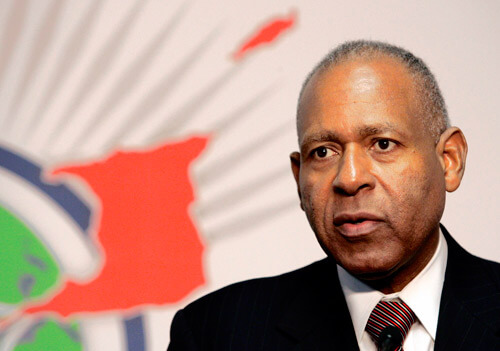There was respectful observance recently of the 99th anniversary of the birth of Dr. Eric Williams, the scholarly historian and former prime minister of Trinidad and Tobago, who died in office in 1981. Plans are afoot to have the 100th anniversary milestone — which will come up Sept. 25, 2011 — marked by special commemorative activity. As well it should.
By any measure, Dr. Williams was one of the truly titanic figures of public life in the Caribbean to have emerged in the 20th century. And there’s no doubt that such an encomium would be much in order if only on the basis of his scholarship. His most renowned published work, Capitalism and Slavery, which challenged the proffered British establishment take on what motivated the end of the slave trade, remains a classic in the field, after having been initially published in 1944 and having, in the interim, been translated into seven languages.
Amazingly, Dr. Williams was able to indulge his passion for research and writing even after becoming involved in active politics and assuming leadership of the Trinidad and Tobago government, producing such texts as his autobiography, “Inward Hunger: The Education of a Prime Minister” and “From Columbus to Castro.” To coincide with Trinidad and Tobago’s attainment of Independence in 1962, Williams thought to correct what he saw as an egregious void in the country’s recorded odyssey, such as it was, and wrote “History of the People of Trinidad and Tobago.”
After Williams’ departure in 1955 from the Anglo-American Caribbean Research Commission, an agency set up by the metropolitan powers after WWII, and famously made known his intention to “let down my bucket here with you in the British West Indies,” his next major undertaking was a formal entry into Trinidadian politics via his spearheading role in the founding of the People’s National Movement (PNM) in January, 1956. Essentially reflecting the vision of its primary founder, the structural design of the PNM represented a party politics model pretty much unprecedented in Trinidad and Tobago. Beginning with the election of September 1956, the PNM would go on to win a majority of seats in every election through Williams’ passing in 1981.
Of such is the Williams legacy. And it becomes particularly relevant, now that what ought to be a celebratory countdown to 100 years since his birth cannot realistically be oblivious to a state of serious distraction in the party he founded, after a period of leadership so disastrous and rank-and-file complacency so backward, as to be unreal. Patrick Manning’s reign as political leader of the PNM could not have come to a more ignominious conclusion than was witnessed when he led the party to its debacle at the polls last May.
But even more astonishing than the spaced-out decision making and overall behavior emanating from Manning was the collective diffidence of a party machinery that acted for all the world like the obvious truth known to practically everyone else in Trinidad and Tobago was some bit of highly classified intelligence. That Manning had run the PNM locomotive off the rails was beyond dispute. And yet, incredulously, within the party organization there was no substantive move made to at least attempt to arrest the downward spiral by initiating necessary action aimed at Manning’s ouster.
Over the years since he fortuitously became party boss in 1986, Manning had relied on “tradition” and “history” in the party as key anchors of his hold on the leadership. Unfortunately, lesser lights in the organization likewise failed to realize that tradition and history didn’t mean squat once conduct at the top reached such unpredictably reckless proportions. Would that these catatonic bystanders had lent an ear to the comment of one of the Nazi military men who conspired to assassinate Hitler, as portrayed in the “Night of the Generals” movie: “When a commander goes mad, he forfeits the right to supremacy.”
Sometime after the PNM’s humiliating defeat at the polls in May and after the party had chosen Dr. Keith Rowley as its political leader, some talk surfaced about an element in the party desiring to have Manning return as leader. Although he eventually issued a statement discouraging any further speculation along those lines, the press reported Manning’s first reaction to that bit of deviltry as an apparently self-serving “Speak to my attorney.” One wondered whether the lunacy had in fact not yet ended.
More importantly, there is seemingly a pretty solid body of belief that Manning’s obstinacy and maniacal antics, particularly in his severely truncated last term as prime minister, have damaged the PNM beyond repair. If so, the fault, as we have noted, is not Manning’s alone but should rest even more with the gutless wonders who permitted him to range unchecked, making a mockery of any commitment to democratic governance.
Allowing an institution like the PNM to go under would be an admission on the part of those who now populate it, that the party has lost its moorings. Whether the party, in its selection of new post-Manning leadership is already embarked on its needed restoration is left to be seen. But one thing is certain. At what should be a heady time for the party, bearing down on that 100th anniversary, no displaced leader, no sadistic proxies, should be given the satisfaction of arbitrarily shredding what Eric Williams’ founding vision made possible more than half a century ago.
























